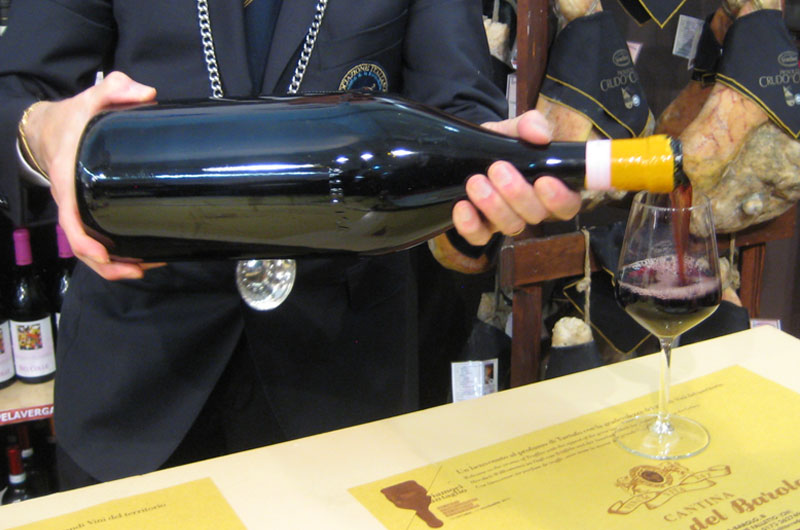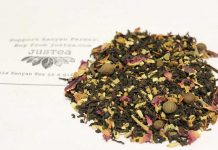
Does alcohol offer beneficial nutrients to boost your well-being? Will it work as a remedy to tackle your pesky cold, or does it pose a health risk?
Beer, spirits, and wine, they’re everywhere. North Americans are consistently inundated with alcohol use, portraying it as good as well as bad.
Florida researcher Matthew Carrigan reckoned the human penchant for ethanol (or ethyl alcohol) could originate from our distance evolutionary history some 10 million years ago.
A Neolithic grog concocted from wild grapes, hawthorn, rice, and honey found in China’s Yellow River Valley attested that humans have been fermenting beverages around 9,000 years ago, cited Dr. Patrick McGovern, Penn Museum Scientific Director in his research on Prehistoric China.
Alcohol is produced by yeast fermentation of certain carbohydrates derived from foods including fruit, grain, and seed. Alcoholic beverages are considered foods under the Food and Drugs Act in Canada and the U.S.
Recipes with alcohol enrich the flavour and aroma of dishes. Contrary to popular belief, alcohol does not necessarily evaporate in cooking, according to research on alcohol retention in food preparation printed in the Journal of the American Dietetic Association. Alcohol amount remaining in food is dependent on the method and length of cooking.
How Beneficial Is Alcohol to Your Health?
Traditional Chinese medicine uses a minuscule amount of alcohol as a catalyst in herbal remedies. The old wives tale of a hot toddy of malt whisky, honey, fresh lemon brewed in piping hot water is said to fend off the common cold.
Oenophiles may suggest toasting to your health for good reasons. An alcoholic drink before a meal can boost your appetite, help de-stress, and a tonic to ease social barriers.
Polyphenols in Red Wine
Wine contains polyphenols, especially resveratrol (found in grape skin) – an antioxidant that has shown to support cardiovascular health. This leads to the ‘French Paradox’ of why France has low coronary heart disease (CHD) mortality even though the population consumes a high saturated fat diet. Some experts attribute this to red wine consumption.

The concentration of resveratrol is higher in red than white wine due to longer fermentation with the grape skins. Resveratrol also provides anti-aging benefits, lowers inflammation, and is present in other food sources like peanuts, cocoa, and berries of Vaccinium species, which includes blueberries, bilberries, and cranberries.
Nutritional Value of Beer
Dr. M.A. Denke reported that beer has more protein and B vitamins than wine. The antioxidant content of beer is the same as that in wine, but antioxidant types differ as barley and hops used in beer production contain flavonoids different from those in wine-making grapes. Beer is more like food. It has more calories than wine and spirits. That may well account for the beer belly.
What is Moderate Consumption?
Denke cited studies evaluating the comparative benefits of wine with beer, and spirits. She suggested that moderate consumption of any alcoholic beverage is linked to lower rates of cardiovascular disease. The evidence is lackluster at its best.
The health benefits of alcohol are debatable
Moderate alcohol consumption may provide possible health benefits including reduced risk of developing and dying from heart disease, ischemic stroke, and diabetes, according to Harvard School of Public Health, and the Mayo Clinic.
Mayo Clinic’s guidelines for existing red wine drinkers who are healthy adults:
- Women of all ages, up to one drink a day
- Men above 65 years of age, up to one drink a day.
- Up to two drinks a day for men age 65 and younger.
A drink is defined as:
- Beer: 12 ounces (355 milliliters, or mL)
- Wine: 5 ounces (148 mL)
- Distilled Spirits: 1.5 ounces (44 mL) of 80-proof distilled spirits
In Spring 2016, the UK media reported that a pint of beer a day could protect you from heart attacks. This claim was refuted based on a lack of rigour. The Italian beer trade association funded the study.
Moderate Use Isn’t Risk-Free
Before stocking up your cellar, medical experts caution that evidence on the health benefits are debatable, and alcohol may not benefit every drinker. Alcohol tolerance depends on the individual’s genetic makeup, physique, and age.
Consult your doctor prior to reaching for your glass of booze. Mixing alcohol with medication or even supplements can be fatal.
Medical experts advised that if you don’t drink, there is no reason to start.
There are other ways to improve your heart health and lower your risk of diabetes, for example, eating a healthy diet and exercising.
Low risk does not equal no risk
Alcohol – A Psychoactive Drug

“Although handled more like food in Canada, alcohol is a mind-altering drug and there are health risks associated with drinking,” remarked Dr. Gregory Taylor, Canada’s Chief Public Health Officer in his report on the State of Public Health in Canada 2015. Some key highlights in the report:
- Drinking patterns matter — how much and how often a person drinks increase or decrease health impacts.
- Drinkers are at risk for chronic health effects, such as liver cirrhosis and various forms of cancer.
- Women are at increased risk for breast cancer even at a low level of one drink per day.
- The Canadian Cancer Society cited that there is no “safe limit” of alcohol consumption when it comes to cancer prevention.
- Risky drinking can increase the risk for family conflict, violence, crime, and traffic accidents through impaired driving.
- Teenage brains are more vulnerable to the effects of alcohol. Avoid alcohol in pregnancy.
Related: Is Coffee Good or Bad for Your Health? What’s the Limit?
While drinking is associated with many positive situations including celebration, mood enhancement, and relaxation, it also has negative effects on your health and the health of others.
Is alcohol a food, medicine, or intoxicant? It depends on how you consume it, the quantity, and frequency.
Posted: December 23, 2016 | Updated: January 04, 2025






































